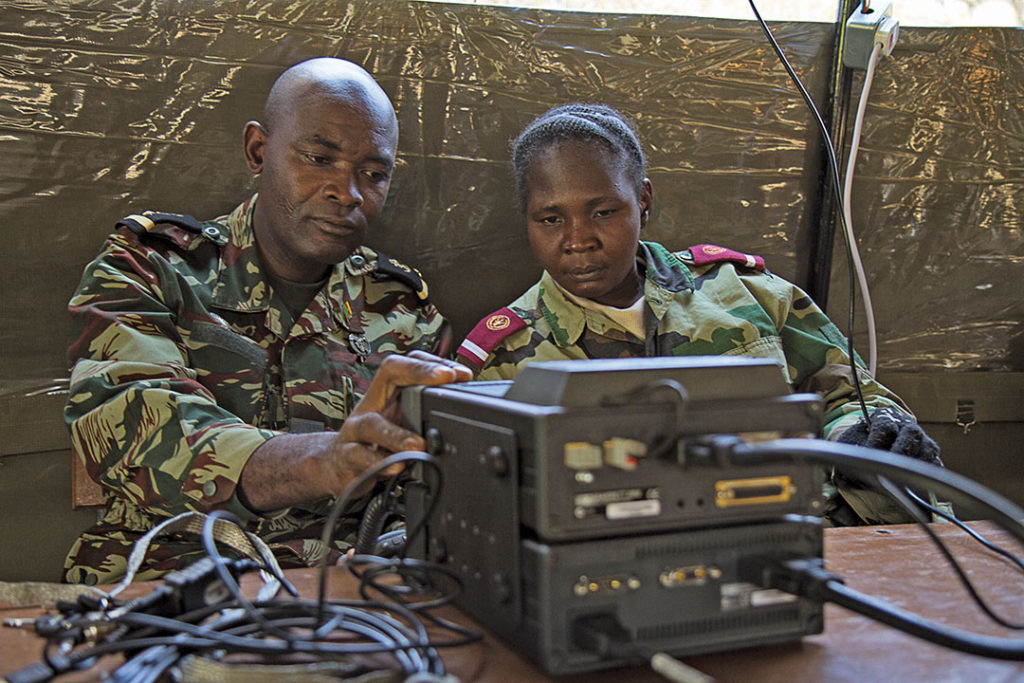U.S. Africa Command Staff
There was a time when a military commander could comfortably say, “I’m not a computer person” or “I don’t really use the internet.”
That attitude is no longer an option.
Being a security professional today means keeping up with threats that lurk in cyberspace. Foreign adversaries can attack weapon systems, put troops’ lives in danger and create chaos on networks that support railways, water distribution and electricity.
Being knowledgeable about cyber issues is not only about threats. It means being comfortable using computers to access information and communicate. Technology doesn’t just support the modern defense mission; it is central to it.
Security professionals everywhere are trying to do a better job. It starts with training in national universities, staff colleges and continues with midcareer training. Militaries need to make cyber security a dedicated specialty and ensure that all Soldiers have a minimum level of computer competency.
It also is time to examine the military’s role in guarding against cyber attacks. Countries such as South Africa and Nigeria are launching cyber commands, and other nations are nurturing cyber specialties within existing command structures. This should coincide with a national dialogue about the role the military can and should play in cyber security.
Finally, security professionals must practice cyber awareness. Threats are evolving, and cyber hygiene best practices must evolve as well. Anyone who doesn’t know how to spot phishing attacks and avoid malware or ransomware puts an entire network at risk. Multilevel security protocols and identifying insider threats are equally important.
Internet access is growing faster in Africa than anywhere else in the world. The continent and its economies now rely on high-speed internet. Security professionals must be ready to do their part to ensure that cyberspace stays safe.


1 Comment
I need to join